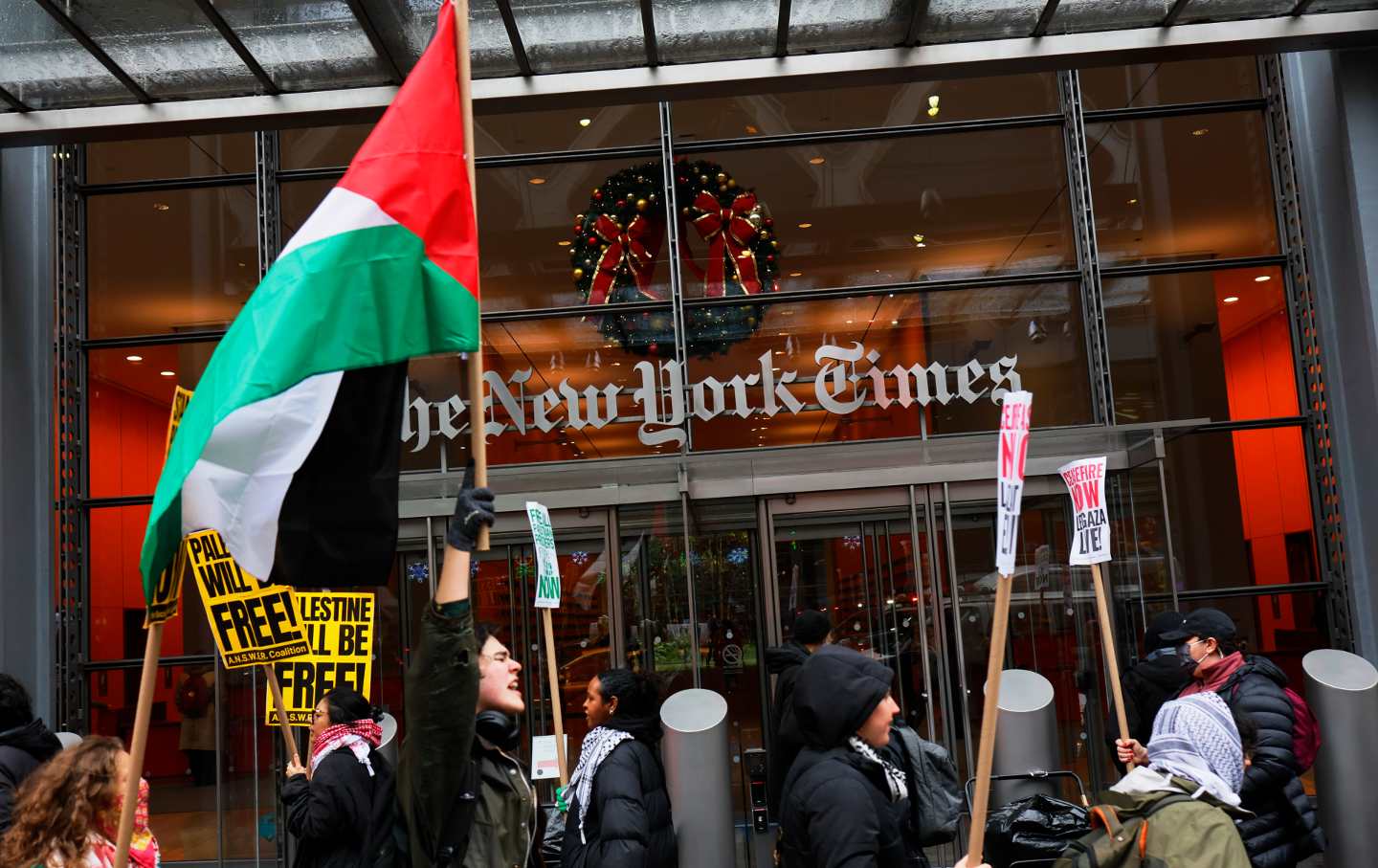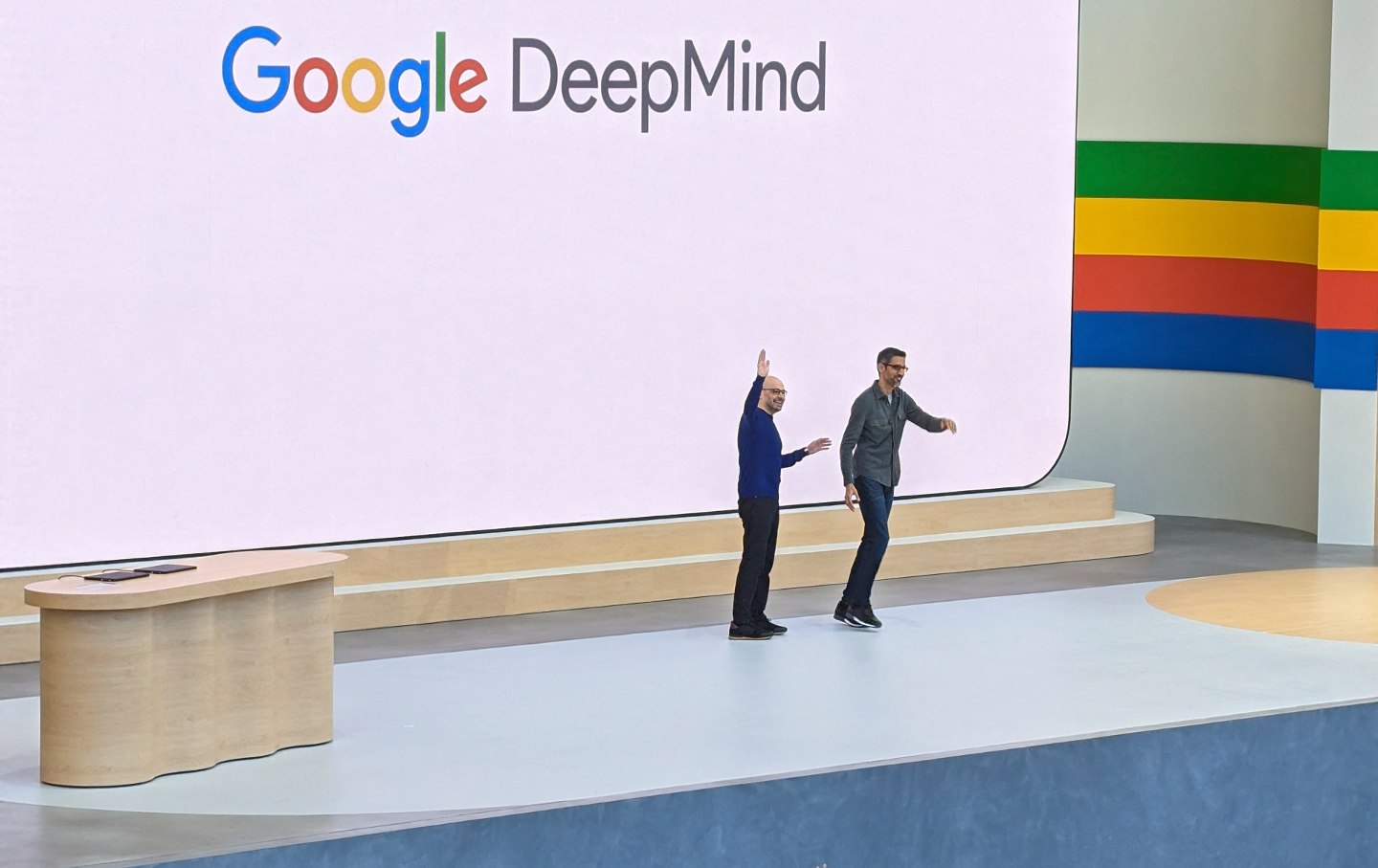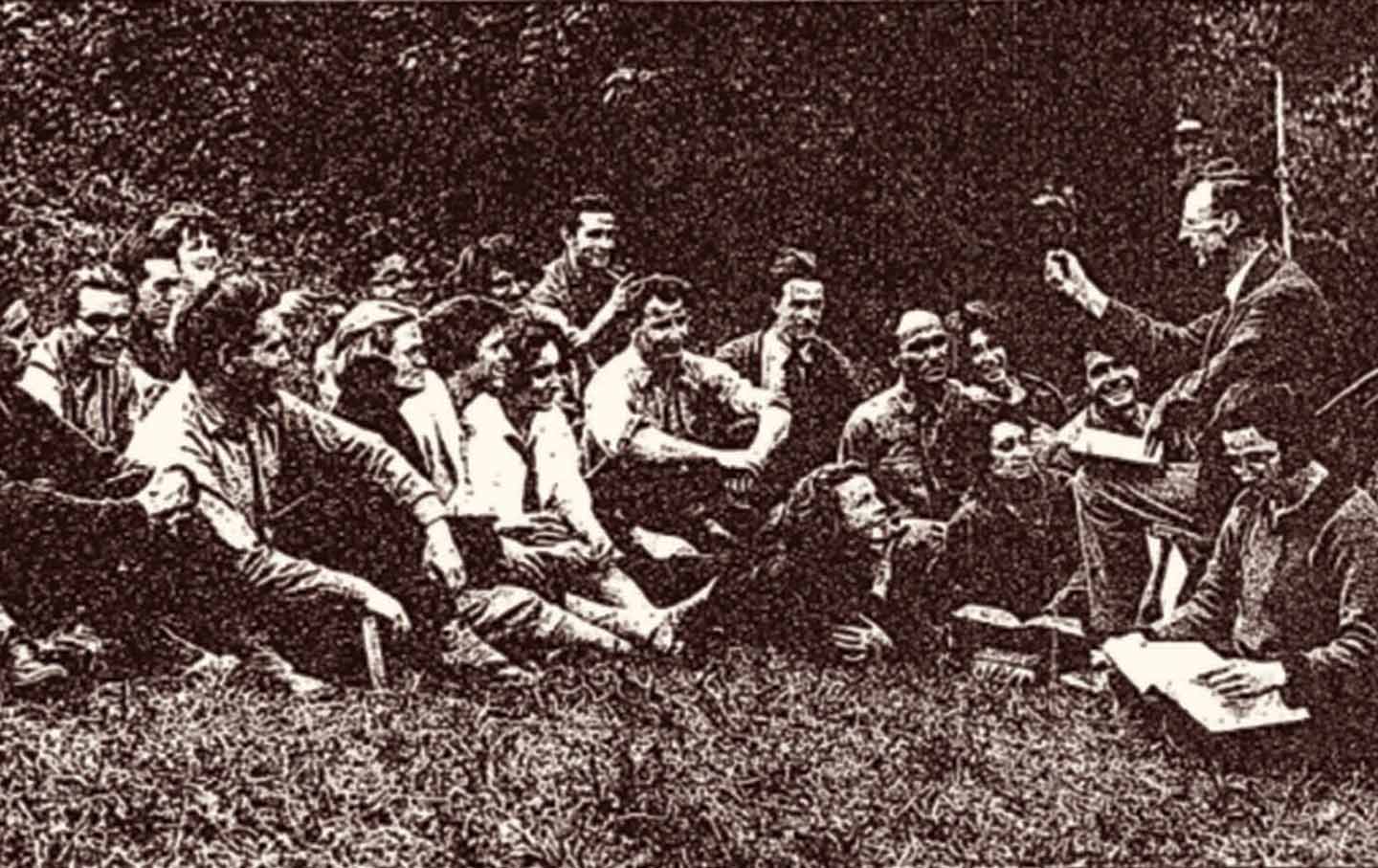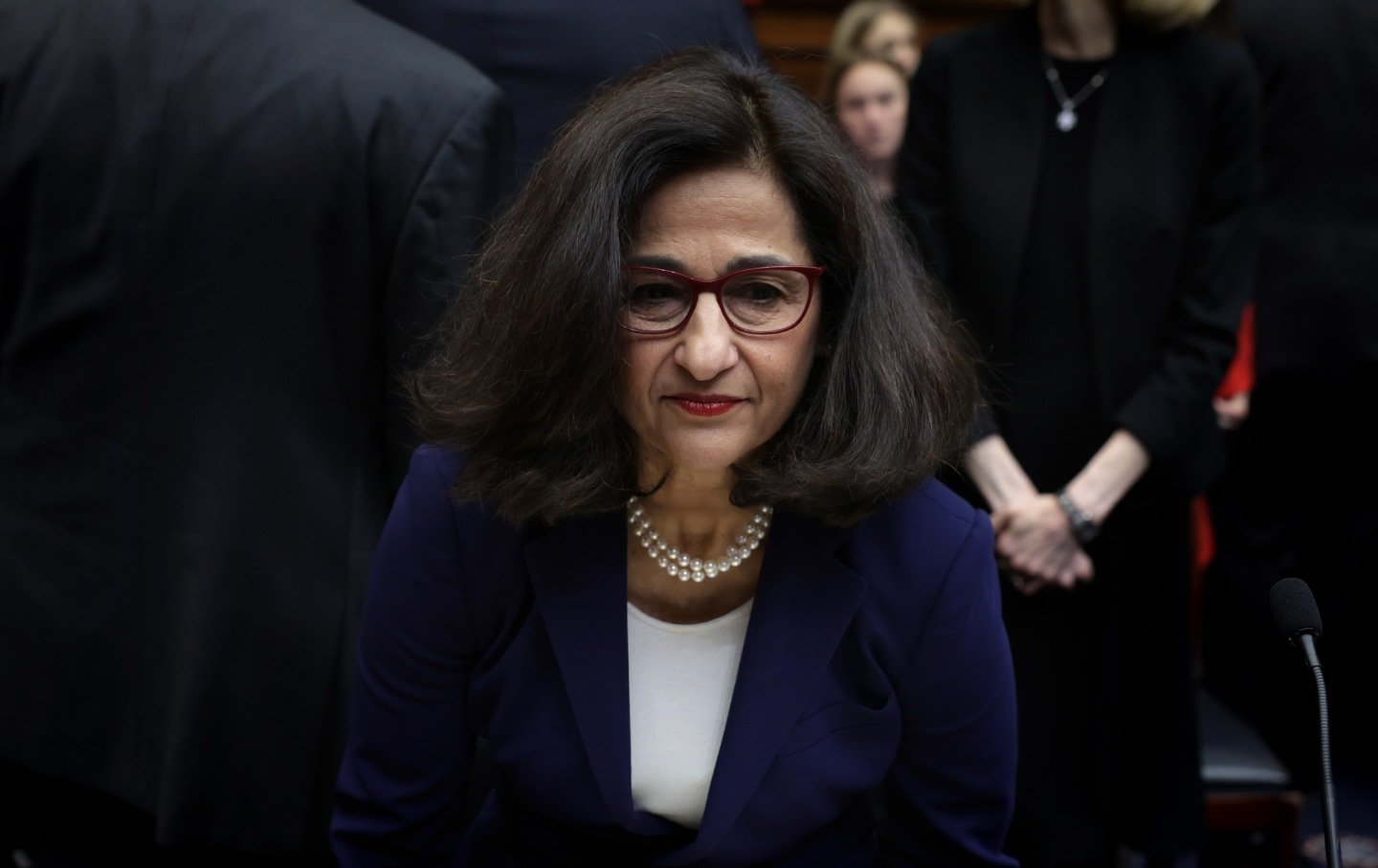Last week, just before the fall semester was set to begin, Columbia University President Nemat “Minouche” Shafik announced that, after only one year in the role, she would be stepping down effective immediately.
Shafik alluded to a “period of turmoil” that had taken a “considerable toll” on her family. She didn’t mention the sources of that turmoil, or reflect on how she may have disappointed the school community she was supposed to serve. But it was not hard to read between the lines.
No university leader was more associated with the brutal nationwide crackdown on the Gaza solidarity encampments that spread from Columbia to campuses around the world. Shafik’s decision to unleash the NYPD on her own school destroyed her credibility forever.
From last August to this May, I was a master’s student at Columbia Journalism School. I saw Shafik’s entire stint up close. So I know that it’s too easy to confine the story of her demise to this spring’s protests. Instead, you have to look at the whole of her brief, terrible tenure to understand why she’s gone.
On October 4, 2023, Shafik was sworn in as Columbia’s 20th president on the steps of Low Library. She was the university’s first woman and first Arab president, and many students greeted her arrival with enthusiasm. But there were signs of trouble right away. Shafik’s inauguration was overshadowed by multiple protests, from graduate students picketing for fairer wages to a group demanding that the school take real accountability for its role in helping protect Robert Hadden, a Columbia-affiliated gynecologist who sexually abused his patients for decades, from justice.
When Shafik and Columbia University Irving Medical Center CEO Katrina Armstrong (who will now serve as interim president) released a statement about Hadden in September, survivors of Hadden’s abuse immediately rejected it. The victims said that Shafik never personally reached out to them or their lawyer, and that the school was prioritizing wealthy donors over “taking account of the betrayal that Columbia University has committed.” This would become a consistent throughline of Shafik’s presidency.
The October 7 attacks took place just three days into Shafik’s term. On October 9, she released the first in what would become a series of offensive, purposefully vague statements about Israel and Palestine. She said she was “devastated by the horrific attack on Israel,” but made no explicit mention of the attacks on Gaza, referring only to “the situation in Israel and Gaza” and “violence that is affecting so many people.” Not once in in her “Message of Concern for Our Community” did Shafik directly refer to Palestinian, Arab, or Muslim students at Columbia, or the pain and grief they were experiencing.
Students who had welcomed Shafik’s arrival just days before felt deeply betrayed.
“I recently came across a video in my camera roll from when she took the stage as part of her inauguration celebration on October 4th—in it, I’m cheering and I yell out, ‘Ahlan wa Sahlan,’ which means ‘welcome’ in Arabic,” said Maryam Alwan, a Palestinian student at the university. “A mere week later, my camera roll transitions to a photo of a protester holding a sign that says ‘Shame on you, Shafik,’ in Arabic.”
Alwan said that the statement was particularly painful because it came from an Arab woman. “Shafik’s utter disregard for Palestinians in her initial communications was only the beginning of a nightmare from which I’m still trying to wake up,” Alwan describes. “She has taught me that having minorities in positions of power is meaningless if they have no morals or are so willingly beholden to the interests of those who do not see us as human—and ultimately, her capitulation did not save her either.”
The last time I saw Columbia’s hallowed Alma Mater statue without fencing around it was October 18, when I reported on a vigil for Palestinians after the death toll in Gaza had passed 3,000 people.
I vividly remember a student from Gaza whose voice cracked as she said she wished she could be back with her family — that she would have rather died with them than stay in America alone. She described how alone she felt on campus, and how dehumanized she felt in class. This was what Shafik and the rest of the school’s leadership had fostered in just a few weeks: an atmosphere of intimidation and isolation.
From then on, campus entrances would frequently be closed, often with no reason given other than “Due to Demonstration,” which almost always meant there was a pro-Palestine protest expected. NYPD officers became a more frequent site on campus. It was as though Shafik had created a mini surveillance state at Columbia. Black and brown students felt particularly unsafe because of it.
Popular
“swipe left below to view more authors”Swipe →
On November 10, one day after Columbia Students for Justice in Palestine and Jewish Voice for Peace set up a peaceful art installation on the steps of Low Library to mark the killing of 10,000 Palestinians in Gaza, Shafik bypassed student governing procedures and suspended both groups through the fall semester. Columbia accused the groups of having “repeatedly violated University policies related to holding campus events, culminating in an unauthorized event.”
According to a letter from the New York Civil Liberties Union, which is suing Columbia, this decision was a substantial departure from the university’s established procedures for engaging with and sanctioning groups—one motivated by political animus.
“By publicly pronouncing the students’ November 9 conduct as ‘threatening’ and ‘intimidating,’ the university perpetuated already pervasive and dangerous stereotypes about Palestinians, Arabs, Muslims, and individuals—particularly other people of color—who advocate for Palestinian rights in general.”
When students returned to campus in the spring, the hope was that because the suspension was lifted, protesting within the walls of their own school would be easier. Instead, it got worse.
On January 19, I was outside Low Library photographing student protesters as they huddled together, holding signs and protesting the bombing of Gaza and Yemen. It was snowing heavily that day, and after an hour or so of reporting, I left. Had I stayed any longer, I would have been among the students who got sprayed in a chemical attack. Protesters said they smelled something putrid on their clothes after dispersing, which was later identified as “Skunk” an Israeli-developed chemical weapon, tested and used routinely on Palestinians in the West Bank.
The attack was reportedly perpetrated by two Columbia School of General Studies students who formerly served in the Israeli Defense Forces. It took Shafik’s administration more than three days to finally issue a statement, after public pressure, about the attack, which led to the hospitalization of eight students.
For the next three months, there were repeated calls from SJP and JVP for Shafik to step down, both online and in person, with “Minouche Shafik you can’t hide, you’re supporting genocide!”
But in April, things reached a boiling point. On the morning Shafik was set to testify before Congress, students set up the first of their three encampments on the South Lawn and something changed. To someone who had reported on almost every protest since October, things felt different. And they were: For the first time, Shafik and her administration could not look away or quietly sweep things under the rug.
“Though Shafik refused to meet with protestors for months, I ended up being one of the only Palestinian students she ever ended up speaking with,” Alwan said. “I met with her in a group setting on April 8th, and it was largely fruitless and disingenuous. The last thing she said to me was, ‘Take care of yourself.’ A week later, she arrested me and over 100 other students for sitting on the grass with Palestinian flags.”
I also believe that this autonomous student action, which quickly became a global movement, was the first time Shafik realized she may not be ousted by politicians accusing her of antisemitism but rather because of popular protest from her own students. Every move she made from that point on was baffling: from inviting the NYPD to arrest students at the first encampment, to ignoring her own faculty’s vote of no-confidence, to sending out letters threatening suspension to anyone who refused to leave the second encampment, to, of course, how she handled the takeover of Hamilton Hall.
The night of April 30 is permanently burned in my memory and, I’m sure, that of anyone else who was on campus. That night, we received an alert that police vehicles from the strategic response group were approaching the campus. We all rushed out, professors included, to stand ready to photograph, film, and write about everything that was soon to happen. Protesters linked arms and sang in front of the building they took over the night before—one they had renamed “Hind’s Hall,” in honor of 6-year-old Hind Rajab, one of more than 16,000 Palestinian children killed by the Israeli military in Gaza. The students protected the building with their bodies, despite the force that they knew was coming.
Not only did Shafik authorize hundreds of officers to brutally arrest her students; she also prevented all of us in the press from doing our jobs. Student reporters, including graduates at the journalism school, members of the undergraduate student newspaper The Columbia Daily Spectator, and correspondents at the radio station WKCR, were kettled outside the campus gates or into the journalism building where we could not see anything that was happening. None of us thought it was a coincidence that Shafik waited until it got dark to call in the police, and that we weren’t allowed back in to report until well after all of the arrests.
In the days that followed, student reporters routinely had our access to campus denied. If we wore our press passes, we were told by campus security that “no press is allowed in,” and if we held up our campus IDs, we were told we “weren’t essential personnel.” Shafik and her administration sought to make reporting on this story almost impossible, and in doing so, violated the fundamental rights of the press.
In her resignation letter, Shafik noted that “It has been distressing – for the community, for me as president and on a personal level – to find myself, colleagues, and students the subject of threats and abuse.” But she has yet to come to terms with the fact that many of her students, Palestinian and Jewish alike, did not just face “threats”: They faced actual violence, including violence instigated by her. Members of SJP and JVP spent the year getting doxxed, faced harassment and ridicule on campus with no protection from the administration, and ultimately experienced police brutality because she signed off on it.
“When I think of Shafik in the years to come, the images that will flash in my mind will be of bloodied students dragged out in handcuffs amid screams, of hundreds of armed riot cops storming campus in the dark, of locked gates devoid of community within, and of the blood spilled in Gaza with weapons she refused to cease investing in at all costs,” Alwan told me.
Shafik said that she will be accepting a role with the UK’s foreign secretary, “to chair a review of the government’s approach to international development.” It is an interesting choice given her total failure to handle international issues within the confines of just one campus.
When I asked Alwan whether she saw Shafik’s resignation as a victory for the movement, her answer was layered. “Though I personally feel happy that someone so directly responsible for the pain of so many in our community will no longer share the halls with us, I recognize that she is merely the figurehead of deep institutional rot,” she said. “I hold no illusions that wiping the slate clean now will serve as anything other than a deflection tactic for what is likely to be an enduring struggle.
And Alwan had a message for Shafik’s successor. “I hope that interim president Armstrong will learn from the mistakes of her predecessor,” she said, “and understand that the student movement will not only last until divestment from the apartheid state, but also grow tenfold with each repressive move.”
Can we count on you?
In the coming election, the fate of our democracy and fundamental civil rights are on the ballot. The conservative architects of Project 2025 are scheming to institutionalize Donald Trump’s authoritarian vision across all levels of government if he should win.
We’ve already seen events that fill us with both dread and cautious optimism—throughout it all, The Nation has been a bulwark against misinformation and an advocate for bold, principled perspectives. Our dedicated writers have sat down with Kamala Harris and Bernie Sanders for interviews, unpacked the shallow right-wing populist appeals of J.D. Vance, and debated the pathway for a Democratic victory in November.
Stories like these and the one you just read are vital at this critical juncture in our country’s history. Now more than ever, we need clear-eyed and deeply reported independent journalism to make sense of the headlines and sort fact from fiction. Donate today and join our 160-year legacy of speaking truth to power and uplifting the voices of grassroots advocates.
Throughout 2024 and what is likely the defining election of our lifetimes, we need your support to continue publishing the insightful journalism you rely on.
Thank you,
The Editors of The Nation
More from The Nation

“We have members who are on Section 8,” said one union representative. “The majority of our members can’t afford to live here in Ithaca, close to their job.”
Aaron Fernando

There is often a high price to be paid when journalists try to tell Palestinian stories.
Hoda Sherif

The Olympic Games supercharge the problems that already exist in a host city. We saw that in Paris—but what will happen in LA?
Jules Boykoff and Dave Zirin

AI’s top industrialists say they want regulation—until someone tries to regulate them.
Garrison Lovely

A century ago, labor colleges transformed American unions. It’s time to bring them back.
Feature
/
Daniel Judt

Felecia Phillips Ollie DD (h.c.) is the inspiring leader and founder of The Equality Network LLC (TEN). With a background in coaching, travel, and a career in news, Felecia brings a unique perspective to promoting diversity and inclusion. Holding a Bachelor’s Degree in English/Communications, she is passionate about creating a more inclusive future. From graduating from Mississippi Valley State University to leading initiatives like the Washington State Department of Ecology’s Equal Employment Opportunity Program, Felecia is dedicated to making a positive impact. Join her journey on our blog as she shares insights and leads the charge for equity through The Equality Network.




